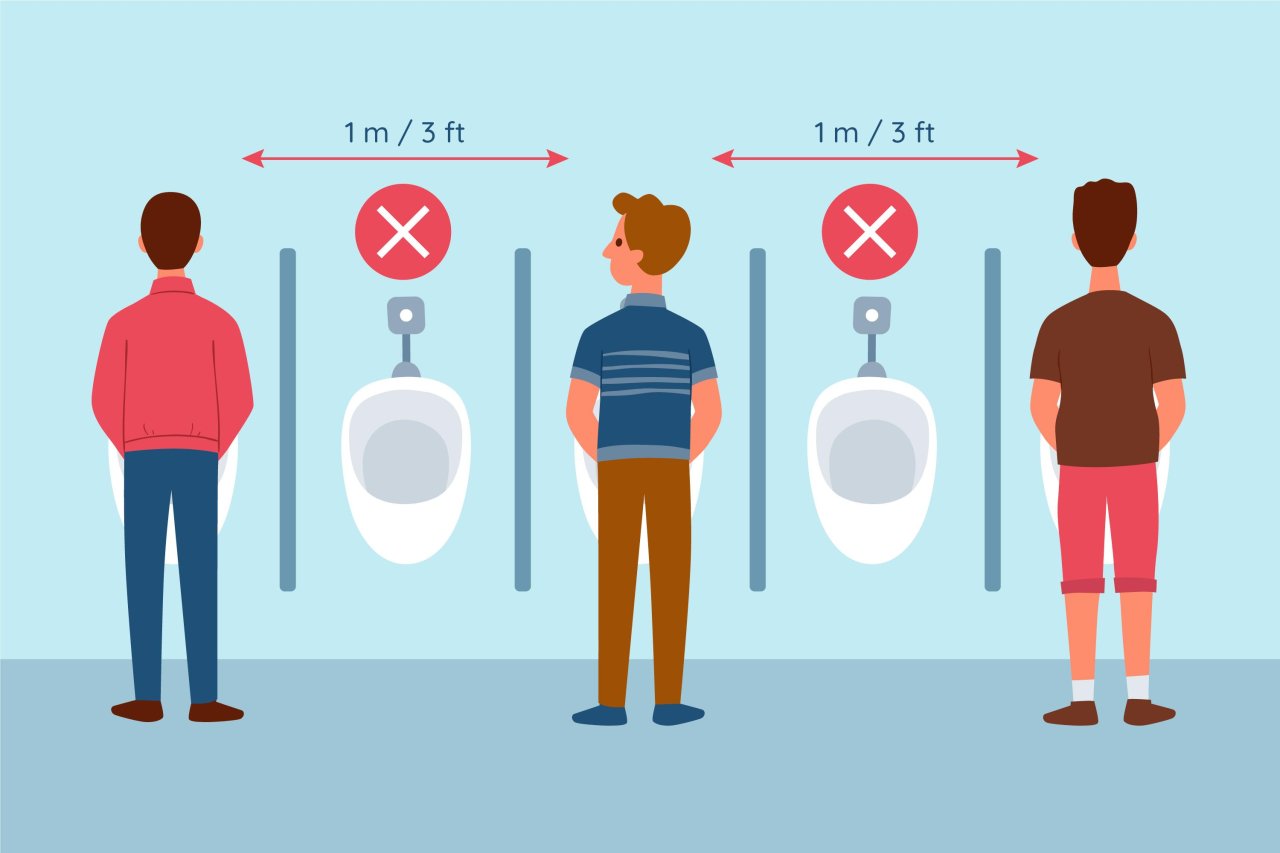Toilet Infections in Men: Signs, Risks & Prevention Tips

Toilet infections, also known as urinary tract infections (UTIs) or genital infections, are often associated with women, but men can also suffer from them. Poor hygiene, unprotected sex, or exposure to contaminated surfaces can lead to bacterial or fungal infections in the urinary and genital areas.
This comprehensive guide covers:
✔ Common signs of toilet infections in men
✔ Major risk factors
✔ Effective prevention strategies
✔ When to see a doctor
By the end, you’ll know how to protect yourself and maintain optimal genital health.
What Are Toilet Infections in Men?
Toilet infections occur when harmful bacteria, fungi, or viruses enter the urethra, bladder, or genitals. Common types include:
-
Urinary Tract Infections (UTIs) – Caused by bacteria like E. coli entering the urinary tract.
-
Balanitis – Inflammation of the penis head, often due to yeast or bacterial infections.
-
Sexually Transmitted Infections (STIs) – Such as gonorrhea or chlamydia, are contracted through unprotected sex.
-
Fungal Infections (Jock Itch, Yeast Infections) – Caused by Candida or dermatophytes due to moisture buildup.
Signs & Symptoms of Toilet Infections in Men
Early detection helps prevent complications. Watch for these symptoms:
🔹 Urinary Symptoms
-
Burning sensation while urinating
-
Frequent urge to urinate
-
Cloudy, bloody, or foul-smelling urine
-
Pain in the lower abdomen or back
🔹 Genital Symptoms
-
Redness, itching, or rash on the penis
-
Swelling or discharge from the penis
-
Pain during sex or ejaculation
🔹 Systemic Symptoms (Severe Cases)
-
Fever and chills
-
Nausea or vomiting
-
Fatigue and body aches
⚠ When to See a Doctor:
If symptoms persist beyond 2-3 days or worsen, seek medical help to prevent kidney infections or STI complications.
Read Also: Female Toilet Infections - Common Types & Natural Remedies
Risk Factors for Toilet Infections in Men
Several factors increase infection risks:
1. Poor Bathroom Hygiene
-
Not washing hands before/after using the toilet
-
Sitting on dirty public toilet seats
2. Unprotected Sex
-
STIs like gonorrhea and chlamydia spread through unprotected intercourse.
3. Weak Immune System
-
Diabetes, HIV, or immunosuppressive drugs increase infection risks.
4. Urinary Tract Abnormalities
-
An enlarged prostate or kidney stones can trap bacteria.
5. Tight Clothing & Moisture Retention
-
Synthetic underwear and sweaty conditions promote fungal growth.
How to Prevent Toilet Infections in Men
✅ Maintain Proper Hygiene
-
Wash your hands before and after using the toilet.
-
Clean the genital area daily with mild soap.
-
Always wipe from front to back to prevent bacterial transfer.
✅ Stay Hydrated
-
Drinking water flushes out bacteria from the urinary tract.
✅ Practice Safe Sex
-
Use condoms to reduce STI risks.
-
Urinate after sex to flush out bacteria.
✅ Avoid Holding Urine for Too Long
-
Stagnant urine promotes bacterial growth.
✅ Wear Breathable Underwear
-
Cotton underwear reduces moisture buildup.
✅ Disinfect Public Toilets Before Use
-
Use toilet seat sanitizers or paper covers.
✅ Boost Immunity
-
Eat probiotic-rich foods (yogurt, kefir) to fight infections.
Treatment Options for Toilet Infections
1. Antibiotics (for Bacterial UTIs & STIs)
-
Doctors may prescribe ciprofloxacin or azithromycin.
2. Antifungal Creams (for Yeast Infections)
-
Clotrimazole or miconazole creams help with fungal rashes.
3. Pain Relievers
-
Ibuprofen or paracetamol can ease discomfort.
4. Home Remedies
-
Cranberry juice (helps prevent UTIs)
-
Warm saltwater baths (reduce irritation)
⚠ Avoid self-medication—always consult a doctor for proper diagnosis.
FAQs About Toilet Infections in Men
❓ Can men get UTIs from toilet seats?
-
Rarely, but bacteria on unclean seats can contribute. Always practice good hygiene.
❓ How long do toilet infections last?
-
Mild infections may resolve in 2-3 days with proper care; severe cases need antibiotics.
❓ Can toilet infections lead to infertility?
-
Untreated STIs like chlamydia can cause complications, including infertility.
❓ Are condoms effective in preventing toilet infections?
-
Yes, they reduce STI risks but don’t eliminate UTI risks from poor hygiene.
Conclusion
Toilet infections in men are preventable with good hygiene, safe sex practices, and prompt treatment. If you experience persistent symptoms, consult a doctor immediately to avoid complications.
🔹 Key Takeaways:
✔ Wash hands and genitals regularly.
✔ Stay hydrated and urinate frequently.
✔ Use protection during sex.
✔ Wear breathable underwear.
By following these tips, you can maintain urinary and genital health effectively.
📢 Share this guide to help others stay informed!
Image From: Freepik.com
 English
English Chinese
Chinese




























